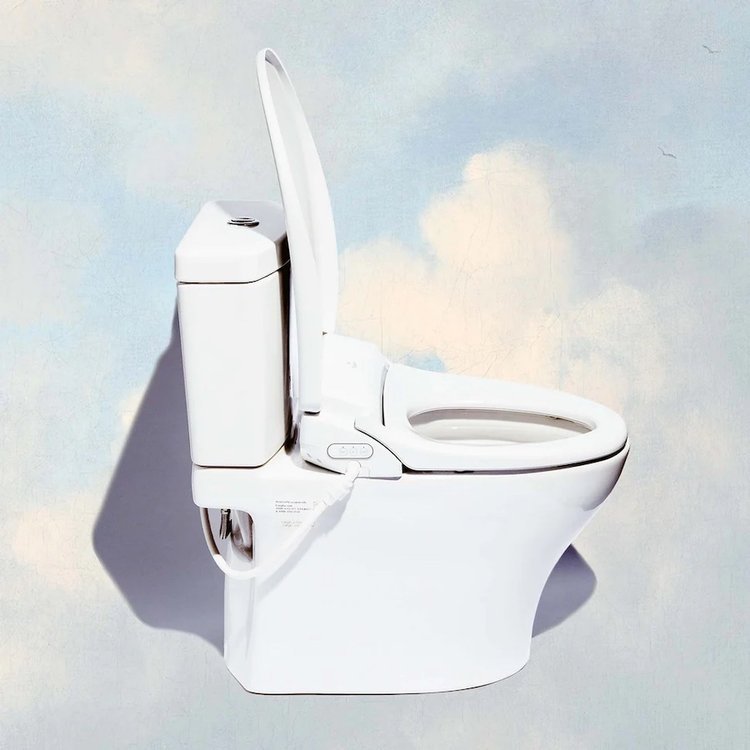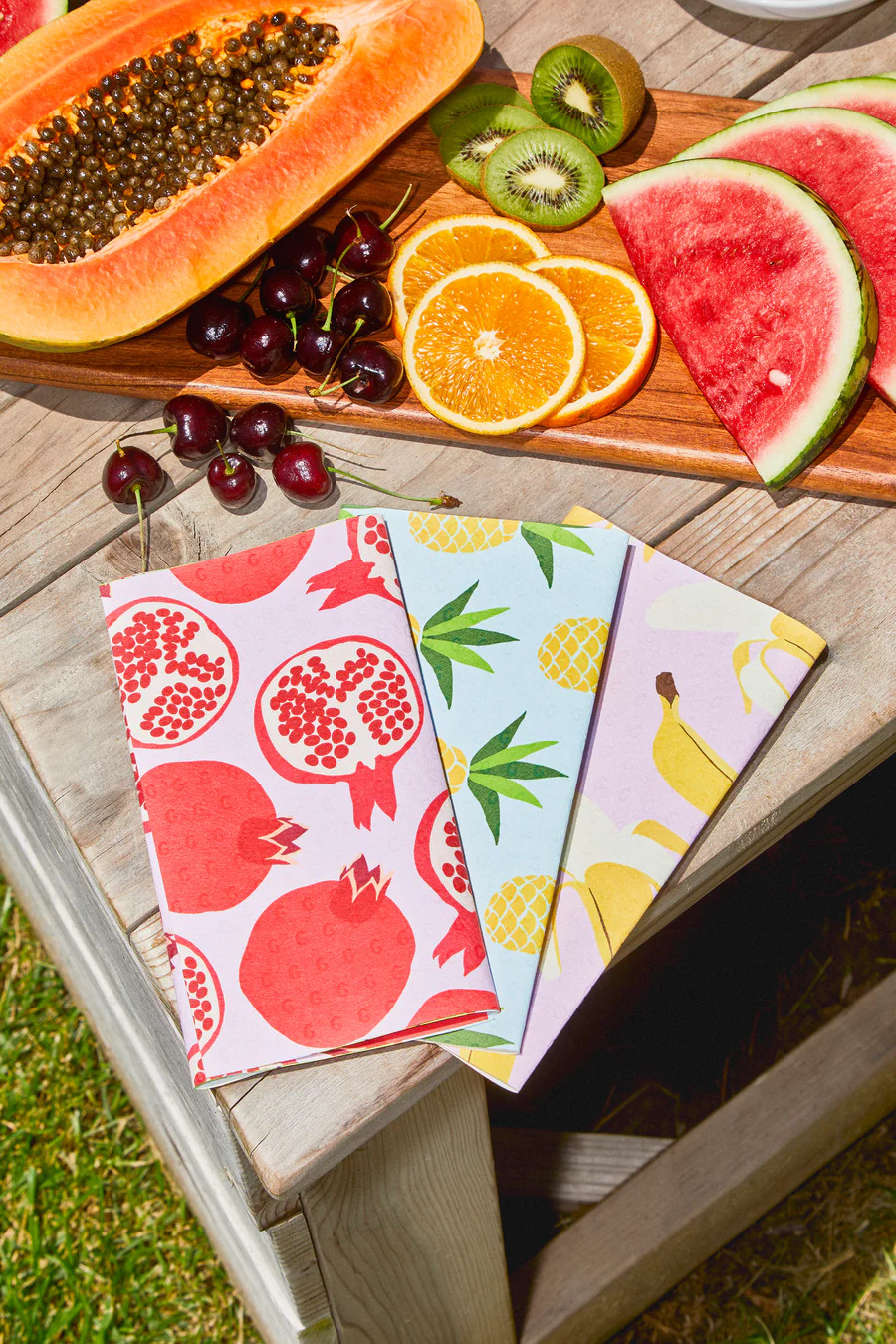
The Best Plastic Trash Bag Alternatives For 2024
The Good Trade editors endorse products we’ve personally researched, tested, and genuinely love. Learn more about our methodology and business model here.
Note: Scroll to the bottom to see our favorite sustainable trash bag brands!
“We’re going to…reuse that?” My husband’s eyes grew wide as I excitedly unwrapped a large drawstring cloth garbage bag and placed it in the bin. It seemed like a better option than the flimsy biodegradable bags we’d tried earlier that month. “It’s better than putting our garbage straight into the bin,” I responded. That plan would have soured quickly 🤢.
Trying a reusable trash bag is part of my personal effort to reduce the waste I create daily. While it’s (relatively) easy to remember my totes and reusable produce bags, I’ve recently noticed my garbage liners often go unnoticed.
“There are ways to dispose of our trash without the added plastic.”
It’s a bit absurd if you think about it—purchasing a plastic product with the singular intent of filling it with waste and discarding it. Garbage bags are destined for the landfill, where, instead of biodegrading, they go through a centuries-long process called photodegradation. The plastic breaks into tiny pieces, which can contribute to the microplastics pollution in the ocean and our soil.
Despite this, garbage bags can be helpful for collecting waste in certain environments. “Bagging [waste] material helps with items that blow away during collection pick-ups, especially on windy days,” explains Janette Micelli from Waste Management. Bags can also be helpful for public health purposes, pollution reduction in residential areas, and for deterring pests.
But there are ways to dispose of our trash without the added plastic. I’m happy to share that after over six weeks of using the reusable garbage bag, it’s been an easy and painless swap for my family. It also reminds us of what waste we’re actually producing.
When we empty the bag into the dumpster, the whole week of garbage lays itself out before us like a report card—the wasted eggplant, the junk mail we’ve yet to unsubscribe from, the tampon wrappers. To avoid the possibility of wind-blown pollution, I now pay extra attention to what gets bagged and what doesn’t. Before throwing something away, I evaluate which small plastics can be recycled and bag anything that could easily blow into the streets or waterways during collection.
“The best way to reduce your reliance on plastic garbage bags is to reduce your waste output overall!”
The most impactful change I’m working towards, though, is reducing single-use plastics from my shopping list in the first place. The best way to reduce your reliance on plastic garbage bags is to reduce your waste output overall! For me, that looks like finding composting options in my city for food scraps, eggshells, looseleaf tea, and coffee grounds, and making the shift towards zero-waste period products at long last.
If you’re interested and able to make a swap, why not try it out? You might be surprised at how seamlessly you can integrate it into your routine. Here are a few plastic trash bag alternatives, as well as some tips for each.
Use bags you already have
Start by using what you have! Do you have paper bags from every shopping trip you forgot to bring your totes? Use those up! Just make sure to fasten your garbage lid a bit more securely, as paper bags don’t hide odors well. (This can be an issue if you live near curious raccoons.) Have promotional tote bags from pre-pandemic events? Those are great for recyclables! Once the bag is full, toss your jars and plastic in the recycling loosely so they can be appropriately processed.
“While bagging your waste may be necessary, clean and dry recyclables should be placed in a tub or recycling container without a bag.”
“Bagged recyclables will be sorted as ‘contamination’ and thus be sent directly to the landfill, which defeats the whole purpose of recycling,” says Micelli. While bagging your waste may be necessary, clean and dry recyclables should be placed in a tub or recycling container without a bag. And keep in mind that recycling centers often have varying policies, so check with your local center to be safe.
Buy a reusable bag from a small brand
I invested in this large bag from Marley’s Monsters. It’s waterproof and non-absorbent, which isn’t a requirement but is definitely convenient. To wash it, I turn the bag inside out after a few weeks of use and cover in warm water and soap in the sink. Afterward, I scrub the sink thoroughly with soap, baking soda and vinegar, and boiling water for good measure and extra sanitation.
Go bagless
This is ideal for a single person or couple without kids or pets, since it requires a little more patience, time, and planning. If you have access to a dishwasher, consider getting a small bin for compost and one for trash. Empty them into larger receptacles outside as part of your daily routine, and pop them into the dishwasher when they get super grimy. It’s a thoughtful, regular way to check in on your waste production. You can also do this with larger bins if you have access to a hose.
Choose biodegradable if you must
Finally, consider biodegradable or compostable bags (you can learn about the difference here). In my personal experience, the bags are flimsy and way more expensive than non-bio-based plastic, but they can be an incremental step towards more sustainable public spaces—like workplace bathrooms. You can buy in bulk and manage a larger volume of dry waste without using excessive plastic.
1. HoldOn
HoldOn makes heavy duty plant-based trash bags that are 100 percent home compostable. Simply remove any non-compostable items from the bag, cut off the zip-seal top, then toss both sections into the compost for easy break-down.
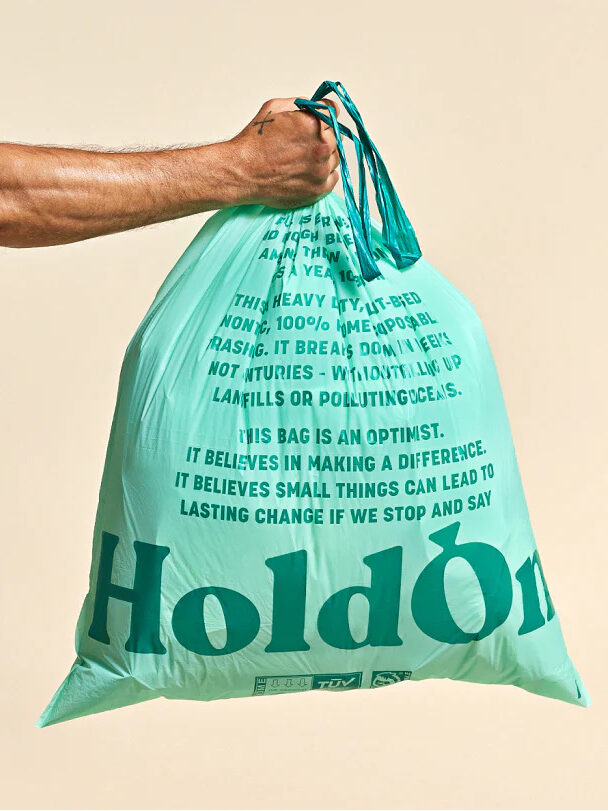
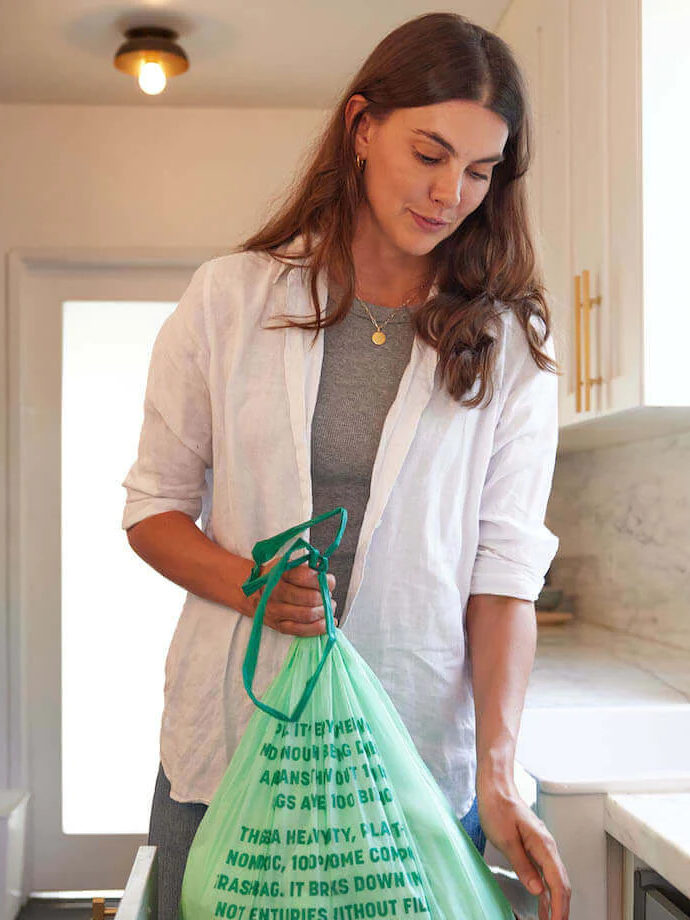
2. TomBag
B Corp certified TomBag is committed to replacing single-use plastics both at home and work. This reusable garbage bag is durable, washable and made from recycled plastic water bottles for full circularity.
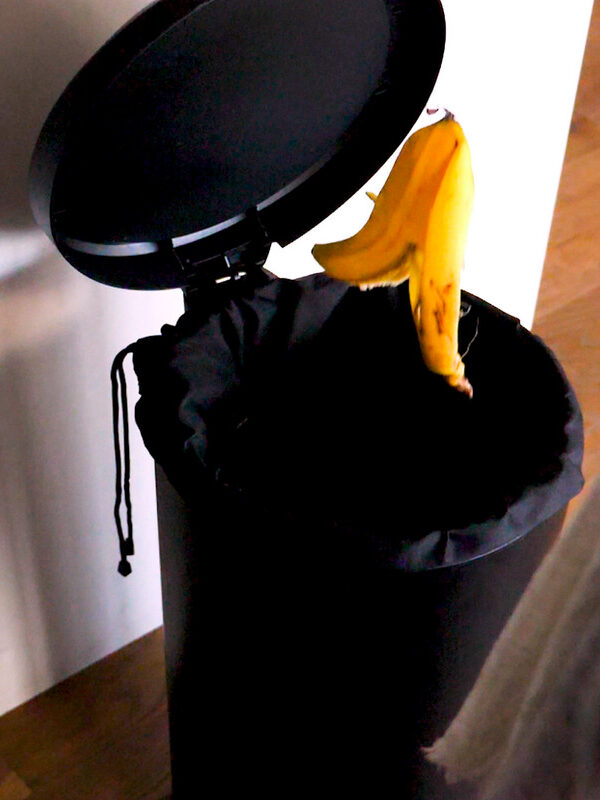
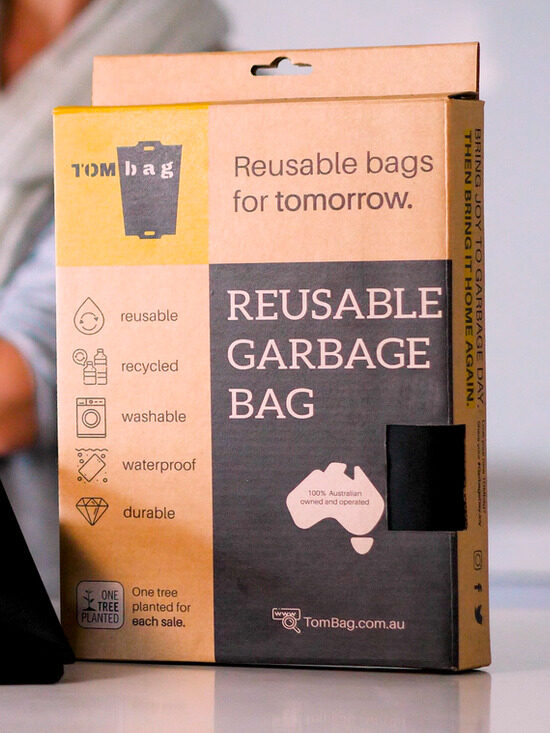
3. Repurpose Trash Bags
For a plant-based, non-toxic compostable option, Repurpose has you covered. These trash bags are home compostable and taller than the average bag so you can ensure a perfect fit without the risk of spillage.
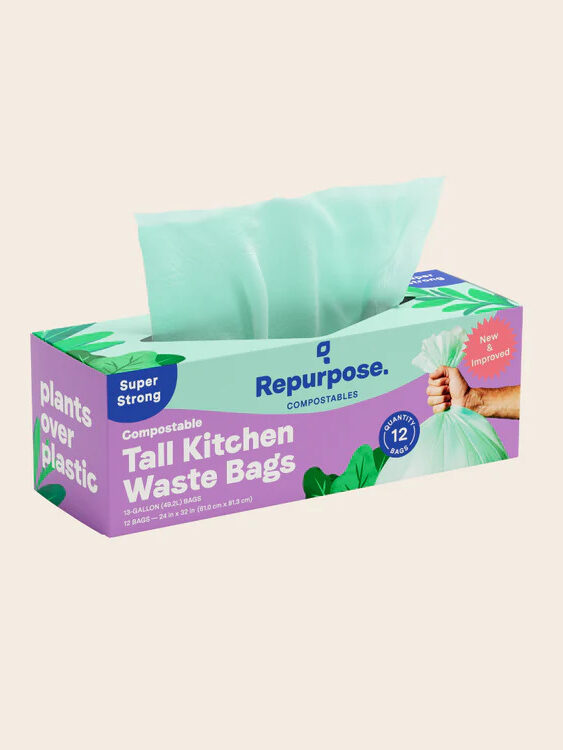
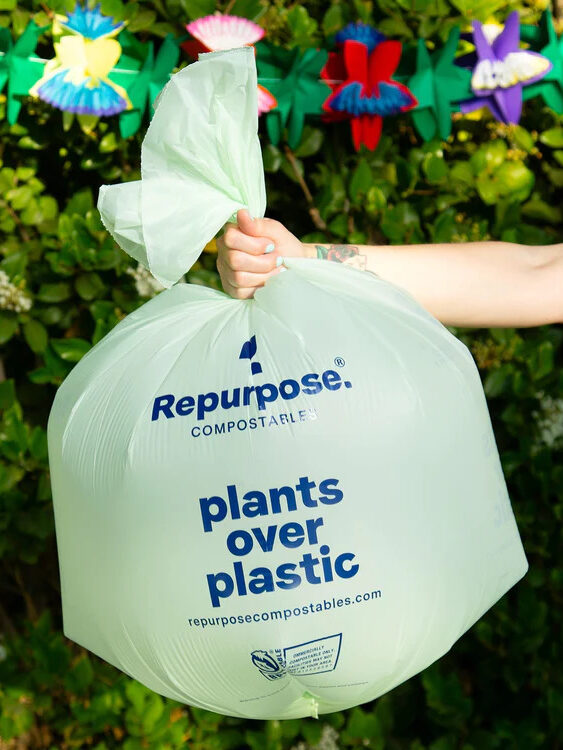
4. Marley’s Monsters
Marley’s Monsters is a small business crafting handmade reusable trash bags of all shapes and sizes. We recommend the Mini Reusable Trash Bag which is perfect for long car rides and comes with a versatile cotton strap for hanging behind your seat.
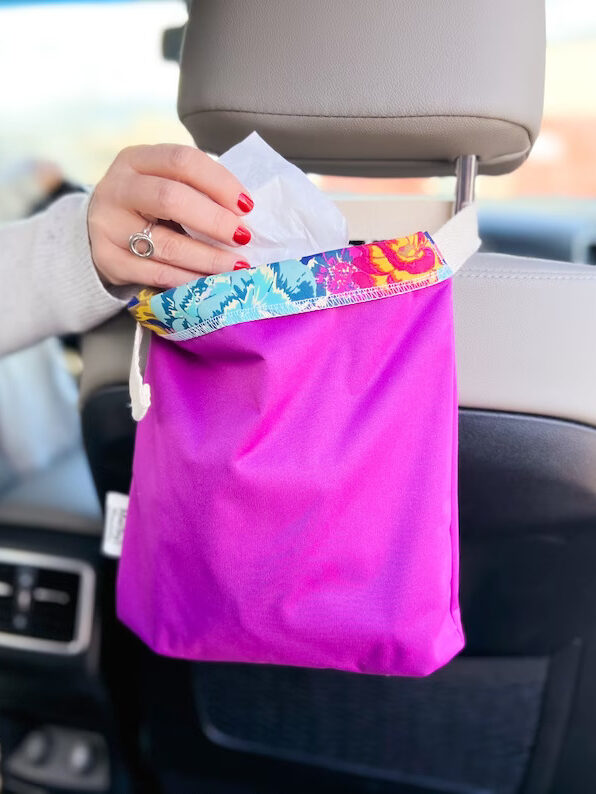
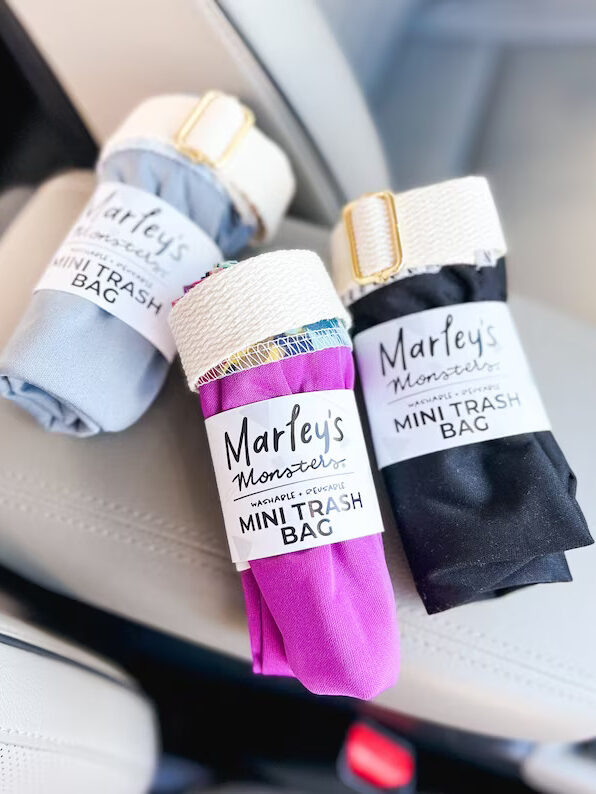
5. Thrive Marketplace
If you need options, make Thrive Marketplace your go-to. This membership-based online marketplace has got it all, with a wide selection of compostable trash bags, kitchen bags and food waste bags all at affordable prices.
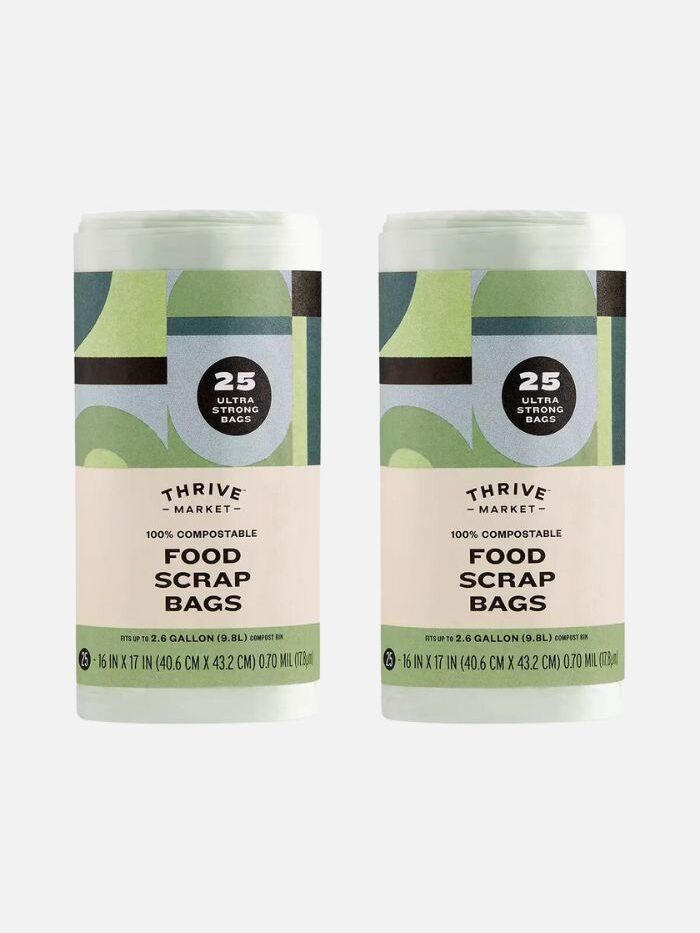
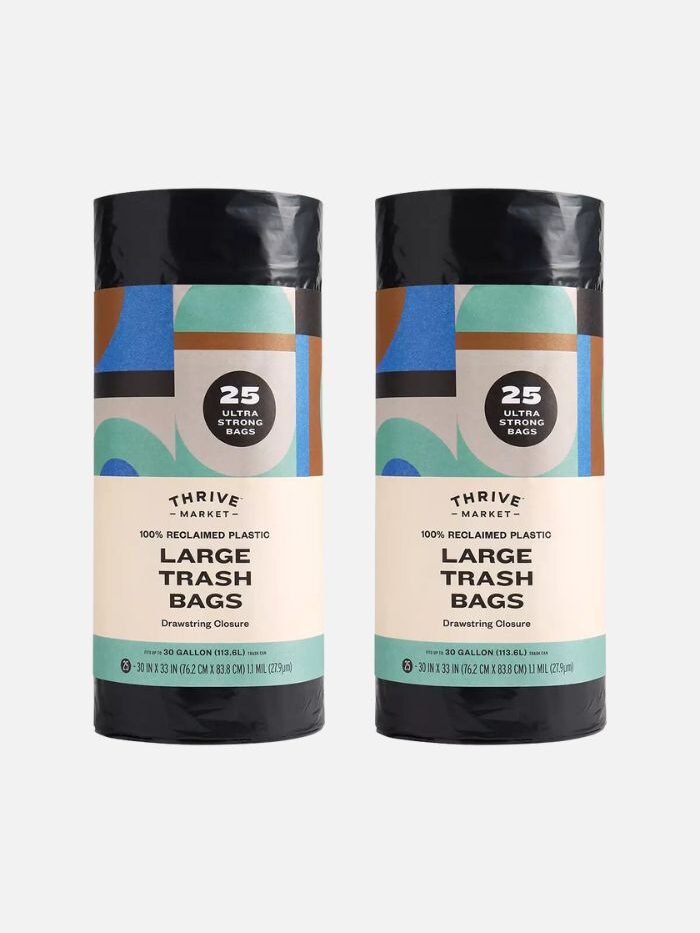
Have you tried going bagless or fully plastic-free for your garbage? Share what’s worked for you in the comments below!
Emily Torres is the Editorial Director at The Good Trade. Born and raised in Indiana, she studied Creative Writing and Business at Indiana University. You can usually find her in her colorful Los Angeles apartment journaling, caring for her rabbits and cat, or gaming.

